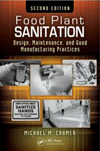Good help is (very) hard to find

Sponsored by

Every year at this time, I pore over the CDC reports on foodborne outbreaks, FDA and FSIS recalls, death certificates from the CDC database, and more, looking for trends to see where we have been over the last 12 months and try to get a glimmer of where we are headed.
Believe it or not, this has been a ho-hum kind of year. Recalls, foodborne outbreaks, deaths are all pretty much “normal.” As has been true for the last 10 years, we have done an amazing job of producing safe wholesome product!
I dug a little deeper this year, speaking to a wider variety of food safety professionals to try and get a better idea of the challenges they face. The answer was universally the same: lack of qualified, motivated people.
As an industry, we traditionally have struggled to get enough people to join our teams, but I have never seen it like this. Short staffing in all positions, in large and small plants, is the issue that everyone faces.
Major producers have decided to shutter shifts, because they can’t staff them. Smaller operators are turning down lucrative contracts, because they can’t staff to meet what they are already making, let alone taking on additional work. New plants are delaying start-up, because they can’t get enough people to staff the lines. Factor in the cost of an employee now and the training it takes before they become productive, and we have a concerning situation.
We all know what happens when you can’t train effectively; people make mistakes, and those mistakes get magnified because the people downstream are also new and aren’t sure of themselves. Now add to it the fact that the food safety & quality technician on the floor hasn’t had a day off in 21 days, and we have a real issue.
So far, we haven’t had many of these mistakes get out into commerce, yet we are tanking a lot more product. When I look at the overall destruction report, it us up by almost 9% from 2019! That is a lot of product gong to landfills instead of going to feed people. We see the amount of product destroyed for “contamination” that was caused by someone dumping plastic liners into the grinder, torn cardboard, boxes not sealed properly and product contamination from the warehouse, etc. going up. This is all human error related.
The number of exasperated owners and managers that I have spoken to is staggering. Uniformly they are proud of their core team and how they have held up and performed. However, they are seeing cracks due to the long-term increased workloads.
Human Resource teams are working like mad to recruit at all levels, but the pool of candidates just isn’t there, be it for line workers, maintenance or food safety technicians. The pressure on raising salaries and benefits is being felt at all levels in the industry, driving costs up.
I sat through a meeting with a senior management team, and the FS&Q director pointed out to the production manager that the failure rate was going up in a key production line. The elephant in the room was that people on that production line were burned out. I don’t know that I have had a FS&Q director suggest that a production team needed downtime and help brainstorm ways of making it happen before.
Short term, the solutions are straightforward. Automate what you can, focus on creating systems that are designed to catch errors typically made by inexperienced or understaffed teams, and take care of your leaders.
Long term we must invest in intelligent automation. In a very small operation, just adding an automated bacon slicer can have a huge impact.
We have a client that we were able to help automate, reducing the need for 17 employees. The total cost to implement was approximately $700,000. The raw ROI easily covered the cost, but the real winners were those 17 employees who were moved to more productive positions within the company.
Using auto probes to take temperatures, self-cleaning belts, auto boxing machines, auto palletizing machines, etc. should be on everyone’s “look at” list, and when the time is right, make the purchase and implement.
I recently attended a meeting with Senator Tammy Baldwin at a production facility. She is helping push to make funds available to modernize the meat and poultry industry. There are others in Washington who also understand that, to feed the U.S. safely, we must modernize our systems. This is not a Democrat or Republican issue, it’s a U.S. issue. We must modernize if we are going to be able to smooth out the supply chain. I urge everyone to be in contact with your representatives in Washington and let your voice be heard.
For us to move forward as an industry and meet the demands that we face we must modernize. The days of cheap labor are over.
Looking for a reprint of this article?
From high-res PDFs to custom plaques, order your copy today!









